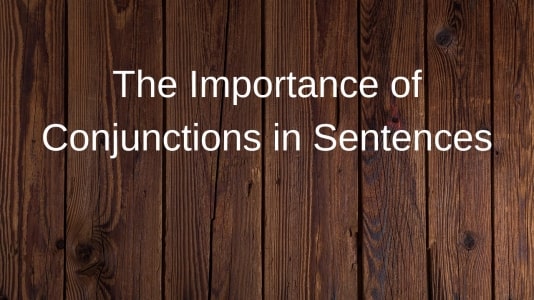Building Blocks of English: Conjunctions
Looking for how-to’s, tips and techniques for English language skill-development? Well, you have come to the right place!
Whether you wish to ace an international test like IELTS or PTE, or just to prep yourself for study or work abroad, we at Hurray are here to help you – with 10 years of experience with English language training, we know just what you need!
To give you a taste of what we offer, we’ve launched a series of blog posts, wherein we take up one component of language at a time, and unveil its various nitty-gritties – this time, conjunctions! Read on to learn more.
P.S. don’t forget to check out our other posts – on Adjectives, Articles, Prepositions, Collocations and English Idioms.
Conjunctions: what are they?
Of all the functional grammar elements, conjunctions are the easiest to define:
|
Conjunctions are ‘joining’ words. |
And why do they matter?
Because of conjunctions, we are able to connect several words and even broader concepts and ideas together – allowing us to build complex sentences that can convey interesting and compelling messages.
Functions of Conjunctions
Broadly, their function may be further sub-divided:
|
Function |
Example |
|
She is clever but shy. |
|
She dropped the bowl and it shattered into pieces. |
|
She went for a run, although we told her not to. |
*in such a sentence, the second clause includes the conjunction – and it depends on the first clause for its meaning – “although we told her not to” makes no sense on its own.
Types of conjunctions
Based on their functionality, there are two types of conjunctions:
|
Coordinating conjunctions |
Subordinating conjunctions |
|
These are used to join parts of a sentence that are grammatically equal – i.e. two words, two independent clauses. There are 7 coordinating conjunctions. |
These are used to join a main clause and a subordinating/dependent clause. All other conjunctions are subordinating conjunctions. |
Major Examples
Coordinating conjunctions
|
Conjunction |
Example |
|
And |
I like bread and butter. |
|
But |
I like butter but I do not like jam. |
|
Or |
Would you like butter or jam? |
|
Nor |
I do not like this dress nor that. |
|
For |
I bought this jam especially for you. |
|
Yet |
I begged her to go, yet she refused. |
|
So |
She would not go, so I went instead. |
|
Here’s a handy trick that’s used around the world to remember the 7 coordinating conjunctions – use the acronym FANBOYS! For, And, Nor, But, Or, Yet, So |
|
Subordinating conjunctions
|
Conjunction |
Example |
|
Because |
I did not ask her to come because she was sick. |
|
If |
If I told you the secret, you would have to keep it. |
|
Although |
Although she is very smart, she is not confident. |
|
That |
I did not know that you liked Korean drama. |
|
Until |
She lived in that house until she died. |
|
While |
Why don’t you have some tea while we wait. |
Types of conjunctions – continued
Conjunctions from either section may be found in three possible forms:
|
Single word |
Compound (consisting of 2+ words) |
Correlative (consisting of 2+ words, separated within a sentence) |
|
All the coordinating conjunctions are single words.
Several subordinating conjunctions, including the ones above, are single words too. |
|
|
Some more subordinating conjunctions:
|
Conjunction |
Example |
|
After |
You can go in after he comes out. |
|
As (Note: ‘as’ may indicate simultaneity, or it may mean because) |
He arrived just as she was leaving. (simultaneity) I had to tell him as it concerned him too. (because) |
|
Than |
I think your painting is better than mine. |
|
Then |
I drew the border, then I coloured it in. |
|
To |
I opened the gate to let them in. |
|
Whether |
Do you know whether he will come today? |
|
In order to |
I have to study hard in order to clear the exam. |
|
As well as |
She wanted the red dress as well as the green one. |
|
As…as |
They were as noisy as we were. |
|
So…that |
I was so tired, that I fell asleep at 8. |
|
Either…or |
You can take either a bus or a taxi. |
The list does not end here – and you should make it a point to look up the rest yourself! Remember, the more conjunctions you are able to use, the better will you be able to build complex sentences and convey your ideas effectively!
Rules for Conjunction Use
There are 2 main aspects that are relevant to the use of conjunctions: placement and commas.
1. Coordinating conjunctions
Coordinating conjunctions will typically be placed between the two words or clauses you wish to connect.
Examples: “She bought it for him.”, “I love you but I can’t stay.”
A comma usually designates that a pause is required – so when trying to decide whether or not you need to use a comma, say the sentence aloud (or in your mind), and decide whether you need to pause or not.
No comma:
-
When joining two words, you will usually not need a comma – e.g. I like this one and that one.
-
You will usually not require a comma when there is a strong connection between the two words/clauses – e.g. I did this for you.
Comma:
-
If you want to place emphasis on either one of the clauses in the sentence, you may want to use a comma – e.g. I worked extremely hard, and finally it has paid off!
-
Some coordinative conjunctions will typically require a comma – e.g. I did my best, yet I failed. He is smarter, so he won.
In sum, the use of commas cannot have a fixed rule – it is case specific. Unless the sentence sounds very odd, using or not using a comma will not make a huge difference!
Special case: Oxford comma
When you referring words in a list, such as:
I bought eggs, bread and ham.
…in some cases, you may place a comma just before ‘and’ i.e. I bought eggs, bread, and ham.
This comma is called the Oxford comma. Whether you wish to use it in your writing or not, is left up to you!
2. Subordinating conjunctions
The subordinating conjunction is always placed at the beginning of the subordinating clause – e.g. We went to the beach, even though it was raining.
The subordinating clause itself may be placed either first or second in the sentence – e.g. Even though it was raining, we went to the beach.
With regard to the use of commas, the same rules apply – if the sentence requires a pause, use the comma.
-
If there is a strong connection between the 2 clauses, the comma may not be needed – e.g. He is innocent until proven guilty.
-
If you need to highlight that there is a connection between the 2 clauses, the comma can be used – e.g. I don’t mind staying, so long as she doesn’t come.
Tips to improve your language
So now you know the functions and the rules – how do you start using them effectively?
The answer is simple: PRACTICE!
Read as much as you can to start improving your grasp on the proper flow of language, and write as much as you can too. The more you practice, the better you’ll get.
What next?
Finally, the best way to improve your language skills, is with a knowledgeable and experienced trainer – at Hurray, we have some of the best! Allow us to help you go deeper into the language, until you can master it!
Whether you need training for IELTS or PTE, or Spoken English training, we are at your service – and best of all, we offer our services online!
You can reach out to us at info@hurrayedutech.com 8971357938, to learn more.











Post Comments